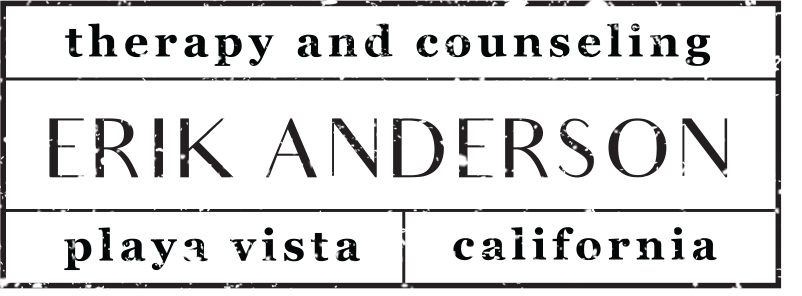Frequently Asked Questions
What is therapy?
Psychotherapy is a relationship between therapist and client where we apply psychology to help the client change their approach to overcoming problems in life.
How long have you been practicing?
I started seeing clients in 2013 in the community clinic of Cal State Long Beach. Since then, I have worked in group practices, hospitals, and universities with individuals, groups and couples dealing with a wide variety of mental health issues. In 2019, I opened my private practice in Playa Vista where I’ve been helping individuals and couples achieve their personal goals.
What issues typically bring people in for therapy?
People typically come in to therapy looking for relief from depression, anxiety, anger, difficulties in relationships, frustrations with managing substance use, or other difficult emotional experiences that feel like losing control or having irreconcilable philosophical issues with oneself, others, or the world.
What do I need to do to start meeting with you as my therapist?
Call 323-283-9207 or email me at erikandersontherapy@gmail.com.
We’ll set up a time to chat over the phone for 15 minutes to go over preliminary questions. Then we’ll set up a time to meet in person. Our first appointment will be an intake interview where we’ll spend an hour talking about your history and your present issues. After that we arrange a regular time slot to meet each week.
Do you accept insurance?
I am an out of network provider. I provide patients with superbills at the end of the month that allows them to make a claim to be reimbursed. Generally, only PPO insurance plans reimburse for out of network care.
A superbill provides information to your insurance company regarding the type of service received, dates of service, and diagnosis. The details of your reimbursement will be determined by your plan with your insurance carrier.
What am I supposed to do in therapy?
The boundaries and privacy of the therapeutic relationship make it the right place to talk about difficult subjects and ask the questions you may have felt like you weren’t supposed to ask. It’s a place to be direct about what you’re thinking, what you want and what you need - the therapeutic process thrives on feedback. Therapy works best when we’re on the same page about your goals and can agree that the way we’re working towards achieving them works for you.
How often do you meet with clients?
When you begin therapy in my practice, I have you accept a timeslot where we meet weekly until you feel your goals have been met and we terminate the relationship. Regularity is part of therapy. Setting a weekly time helps keep this part of the therapeutic container.
How long does therapy last?
Therapy is considered “brief” when it lasts about 8-12 sessions which usually takes 2-3 months. Longer therapy can provide greater insights into one’s own processes and can last for six months or years. There are benefits to both types of therapeutic relationships and I maintain the therapeutic relationship as long as it’s still helpful. My goal is to have clients be well and self sufficient.
Does therapy work?
Psychotherapy is surprisingly good at helping provide symptom relief, personality change, promote health, increase adaptiveness, foster meaning and improve quality of life. Therapy has a large, enduring effect that is comparable or greater than many medical interventions.
What is your approach?
My approach to therapy is informed by my own experience benefitting from psychotherapy as well as my professional expertise. Everyone faces their own challenges, and truly effective treatment requires a tailored approach. I utilize a number of different modalities depending on the needs of each person.
• Cognitive behavioral therapy (CBT)
• Humanistic therapy
• Psychodynamic therapy
• Emotionally focused therapy (EFT)
• Family systems therapy
• Mindfulness
• Motivational interviewing
The existing body of research demonstrates that therapy is most effective when it’s collaborative, so I encourage all of my clients to offer their input and feedback throughout the process.


